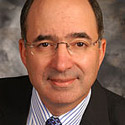11:05 AM
Executive Compensation Limits Could Have Far-Reaching Consequences
Whether appropriate or not, money is how we keep score. The bigger house, the cooler car, the more luxurious jet, the most zeros on your paycheck -- all of these things have been critical to attracting the best and the brightest to our industry.
Is this right? Is it fair? Are capital markets professionals really the best and the brightest? Who knows ...
Nonetheless, industry professionals have commanded high salaries, and firms have been able to afford them. Compensation in this age of the credit crisis, bailouts, takeovers, take-unders and general mayhem, however, has become our industry's third rail. Goldman CEO Lloyd Blankfein was likened to DeNiro in "Goodfellas," asking his employees to keep a low profile. Employees at AIG were asked to give back their bonuses after signing retention agreements. And in general the citizenry has not understood why industry compensation levels have been so high given the level of taxpayer support.
Post-credit crisis, Wall Street compensation models are in flux as five forces vie to catalyze change: the pay czar, the banker tax, pending legislation, shareholder lawsuits and a popular revolt. Each has the potential for varying impact.
While Kenneth Feinberg has the most prestigious moniker (pay czar), now that the major banks have repaid their TARP liabilities, he has the least power. The 50 percent tax on U.K./French banker bonuses over 25,000 pounds (approximately US$40,000) has the most immediate bite, as firms' already have announced that they will fund personnel moves to avoid this tax. If the banker tax truly is a one-time tax, however, the long-term impact will be minimal. But taxes don't tend to be transient, and if the banker tax is kept on the books, the impact would be serious on an already devastated U.K. and European economy. Not only would the bankers move to avoid the tax, so would the banks -- and their payrolls, which fund a cascading set of other businesses, such as real estate, the automotive industry, restaurants and bars, luxury goods and so on.
While popular revolt may have the least teeth, populism and political votes go hand and hand. The U.S. House of Representatives recently passed its version of financial reform, in which compensation was a critical pillar. The House bill would require financial institution compensation schemes to be approved by a nonbinding shareholder vote (today it is approved by a vote of the board) and would require incentive-based pay structures to be reported to financial institutions' regulators, which would be responsible for ensuring these structures are aligned with sound risk management strategies and that they do not create incentives to take undue risk that could threaten the safety and soundness of both financial institutions and the economy.
Chilling Development
While these requirements sound legitimate, just the thought that regulators -- and by proxy, legislators -- might have a say on pay will send shivers down the backs of financial services executives everywhere. Will the bill ultimately be passed intact? Who knows? But given the optics of this year's bonus projections, it may well become law.
While shareholders should have the most impact on pay, many times shareholders vote with their pocketbooks and sell when things get rough. Unfortunately, the people with the greatest vested interest (the owners) sometimes have the least power. Conversely, many times it's the squeaky wheel that gets the oil. In this case, the squeaky wheel will be the litigious.
We've already seen at least one lawsuit in which a pension fund is suing a major broker because the fund believes the broker's pay program was "unconscionable." While this suit may not win, if a similar one does pass muster, there could be a cascade of suits that force the industry to change -- think asbestos or tobacco. The impact could be huge.
What happens in Congress, London, Brussels and the courts on compensation will have a major impact not just on our industry but on the global economy. At the core of the controversy is optics -- if our industry's management cannot get the optics right, legislators very easily could shift the balance of financial power (intentionally or unintentionally) among firms, nations and geographies. As the saying goes, sheep get sheered, pigs get fat and hogs get slaughtered. Let's hope we aren't the hogs.
Larry Tabb is the founder and CEO of TABB Group, the financial markets' research and strategic advisory firm focused exclusively on capital markets. Founded in 2003 and based on the interview-based research methodology of "first-person knowledge" he developed, TABB Group ... View Full Bio



























